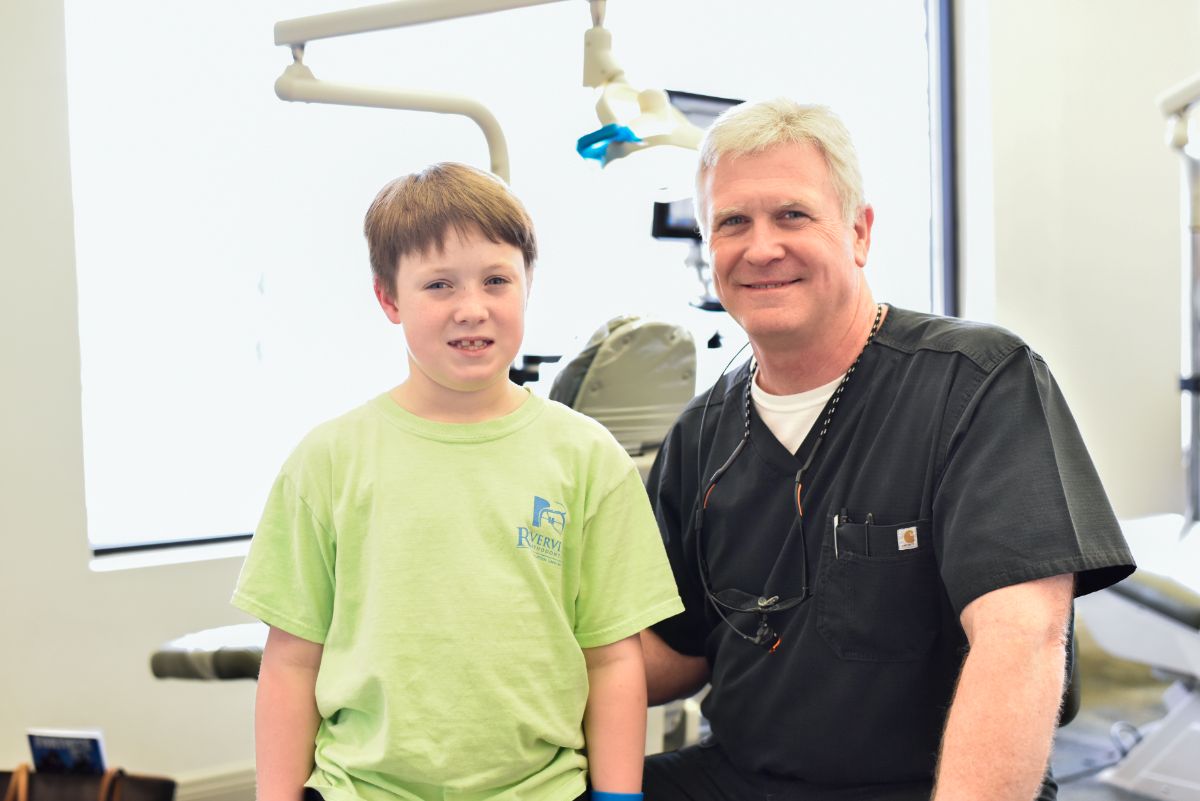As an orthodontist, Dr. Mike Upton has years of training and experience in straightening teeth and correcting jaw development and facial growth issues. He’s able to accomplish this using a variety of orthodontic appliances, including palatal expanders. This tool helps prevent or eliminate more severe jaw and teeth problems that may not leave enough room for the permanent teeth to grow correctly. Let’s take a closer look at what palatal expanders are, how they work, and what they can do to improve your child’s smile!
What is a palatal expander?
A palatal expander is a device that’s designed to work with the changes that occur as the teeth and jaw develop. They help create more space in a child’s mouth by gradually widening the upper jaw. This may sound a little scary, but the upper jaw develops as two separate halves that don’t entirely fuse until after puberty. Until that time, palatal expanders can gently separate and stabilize each half of the jaw. This treatment is time-sensitive because expanders work with the teeth and jaw as they grow.
Palatal expanders consist of two pieces that connect in the middle with a screw. They’re customized to fit over a few top teeth in the back of a child’s mouth and activated by turning the screw in tiny increments each day with a special key. This creates tension at the junction of the two palatal bones, gradually moving them apart. Once the desired expansion is achieved, Dr. Upton will usually keep the appliance in place for a few more months so the new bone can form in the gap and stabilize the expansion. Palatal expanders are typically worn for about 9 to 12 months in total.
Who benefits from a palatal expander?
Permanent teeth usually replace a child’s baby teeth between 6 and 13. Some children have jaws that are too small to accommodate their adult teeth, leading to crowded teeth and misalignment. Palatal expanders can effectively treat these issues by:
- reducing or eliminating overcrowding—expanders create space for all of a child’s upper teeth to erupt in the correct positions
- reducing the risk of developing impacted teeth—when other teeth block an unerupted tooth, Dr. Upton can create room for it to emerge by widening the upper jaw
- correcting a crossbite—the upper teeth should close around the outside of the lower teeth, but a narrow palate can cause the upper teeth to bite inside the lower teeth. An expander can correct this before serious asymmetrical jaw growth occurs, restoring facial symmetry.
Expanding the upper jaw with a palatal expander can also improve a child’s smile aesthetically, limiting the need for tooth extraction, and may shorten treatment time if a child is fitted for braces or clear aligners in our Tuscaloosa or Demopolis offices later on. 
The different types of palatal expanders
The type of palatal expander used for your child will depend on their age and the unique shape of their palate. There are fixed and removable options, and every expander we use is custom-made and fitted by Dr. Upton to complement the child’s natural palate shape and size. The most common types of palatal expanders include:
Rapid palatal expander
The rapid palatal expander, or RPE, is one of the more standard expander types. It has a center screw with four branches attached to the paralleled back teeth of the upper jaw. You’ll get a small key to activate the center screw each day, turning it in small measures to create tension on the two palatal bones. This will widen the palate to the desired size and shape.
Removable palatal expander
The removable palatal expander is also standard when treating children and is often used in cases that require only minimal expansion. The device resembles a clear retainer, like those we give patients once orthodontic treatment is complete, but it also contains a center screw. This center screw works similarly to the RPE and requires the same gentle daily expansion for 3-6 months.
Mini-implant assisted rapid palatal expander
If your child begins treatment with RiverView Orthodontics early enough, it’s unlikely they will need a mini-implant assisted rapid palatal expander (MARPE.) Dr. Upton typically uses these with patients who require more pressure to reshape their palates, like older teens and young adults.
A MARPE includes two to four mini-implants placed on parallel palatal bones. There is also a center screw that works similarly to other palatal expanders, but instead of applying pressure to the teeth, it applies pressure directly to the palatal bones.
Find your child’s healthiest smile at RiverView Orthodontics
Orthodontic care can benefit patients of all ages, including children. A child’s mouth changes rapidly, with a great deal of shifting and moving as the baby teeth are lost, and the permanent teeth grow in. If there’s a misalignment or other issue present, it’s often easier to treat at a younger age while the jaw and palate are still developing.
An experienced orthodontist like Dr. Upton will identify any potential problems and encourage a healthier smile using the appropriate orthodontic tools, including palatal expanders.
If you’re looking to improve your child’s oral health, we’d love to meet you both and take a look at how their smile is developing so far! Get in touch today to schedule a FREE consultation with our Tuscaloosa or Demopolis office.
